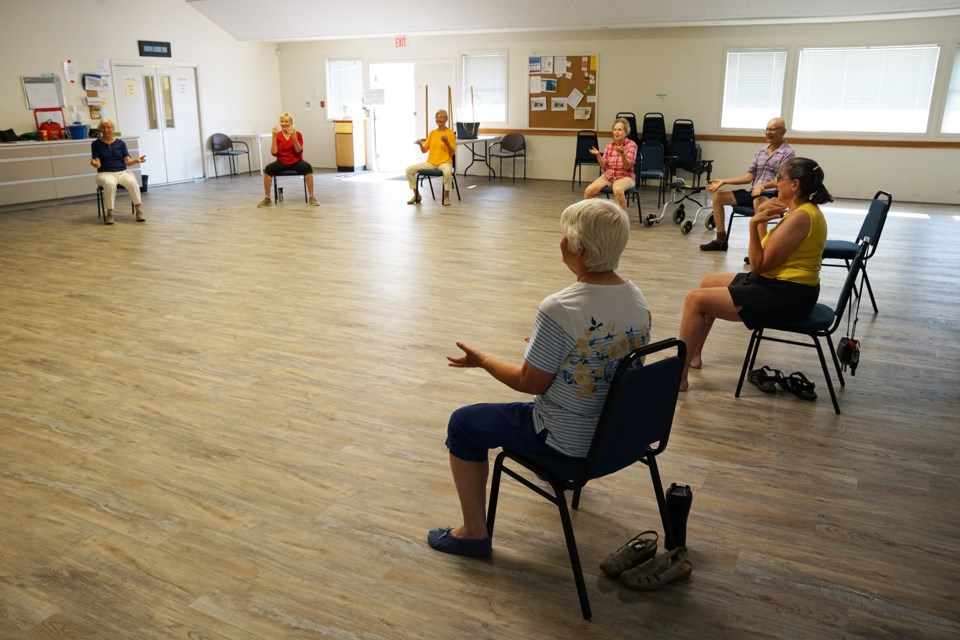Powell River seniors are benefiting from the BC government providing more than $1 million to the BC Association of Community Response Networks (BC CRN).
Powell River Assist (PRA) is one of the 81 community response networks whose goal is to prevent and mitigate all forms of senior abuse – financial, physical, verbal, sexual and social isolation – according to Ron Woznow, chair of the board of Powell River Assist, which has received provincial funding.
To learn more about abuse, neglect or self-neglect and the resources to assist vulnerable adults, visit bccrns.ca.
“If you have concerns about a senior or vulnerable adult, please call PRA at 604.414.7947 and they will connect you to the proper agencies,” said Woznow.
“During the last year, PRA has used radio spots, mail-outs to every household and other print materials to highlight how to spot elder abuse, neglect and isolation, and the community resources that are available to combat it.”
Woznow said in the fall, PRA will start a senior's wellness challenge to help address physical wellness and isolation.
“Seniors will have their blood pressure, heart rate, flexibility and balance measured every six months, and will be encouraged to participate in senior fitness programs through various recreational programming in Powell River,” said Woznow. “These programs have shown that in addition to improving fitness, participants benefit from the social interactions.”
According to a media release from the province, seniors are an important part of communities, providing a connection to history, passing on wisdom, and sharing their unique life experiences, stated Adrian Dix, minister of health.
“The COVID-19 pandemic has been isolating for many of our seniors, and while we hope it would never happen to someone we know, being isolated makes it easier for them to be victims of elder abuse,” stated Dix. “The BC Association of Community Response Networks help British Columbians recognize the signs of elder abuse so we can prevent the harm and distress it causes, and ensure our seniors are being treated with the care and respect they deserve.”
Community response networks are local service providers, agencies, professionals and volunteers who work together to raise awareness of senior abuse, neglect and self-neglect through workshops, community events and through the distribution of information and materials, according to the release. They also make referrals to services in the community for seniors who need individual support.
“The province’s continued support has meant community response networks, and the seniors and communities they support, continue to benefit from the coaching, mentoring and education that the BC CRN provides,” stated Sherry Baker, executive director at the BC Association of Community Response Networks. “We support 81 CRNs provincewide, including Indigenous, Chinese, South Asian, francophone and LGBTQ2S+ CRNs in building healthy and safe communities for all.”
The BC CRN also offers two workshops that help British Columbians recognize senior abuse and neglect and offers ways to support the seniors experiencing it, the release stated. It’s Not Right! Neighbours, Friends & Families for Older Adults, which has been presented hundreds of times around the province, is geared towards residents, neighbours, family and friends of seniors, while Gatekeeper is for essential workers who have regular contact with seniors, such as health-care workers, service providers and care aides.
According to the release, elder abuse, including neglect and self-neglect, is defined as a single or repeated act, or a lack of appropriate action, that causes harm or distress to an older person. Elder abuse can take place in a senior’s home, a care facility or in the community, and often involves a person in a position of trust or a situation of dependency, the release stated. The abuse can be physical, emotional, verbal, financial, sexual, spiritual or neglect.
A national prevalence study found that approximately eight per cent of seniors in BC experience some form of abuse. However, this may be higher, as older adults are often reluctant to report abuse, the release stated.

